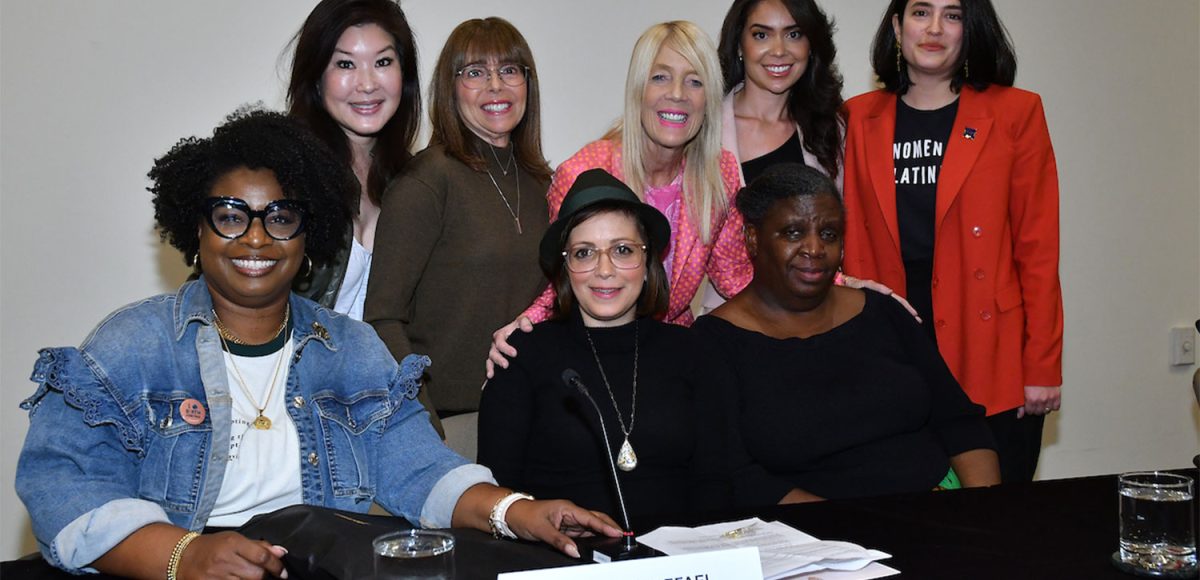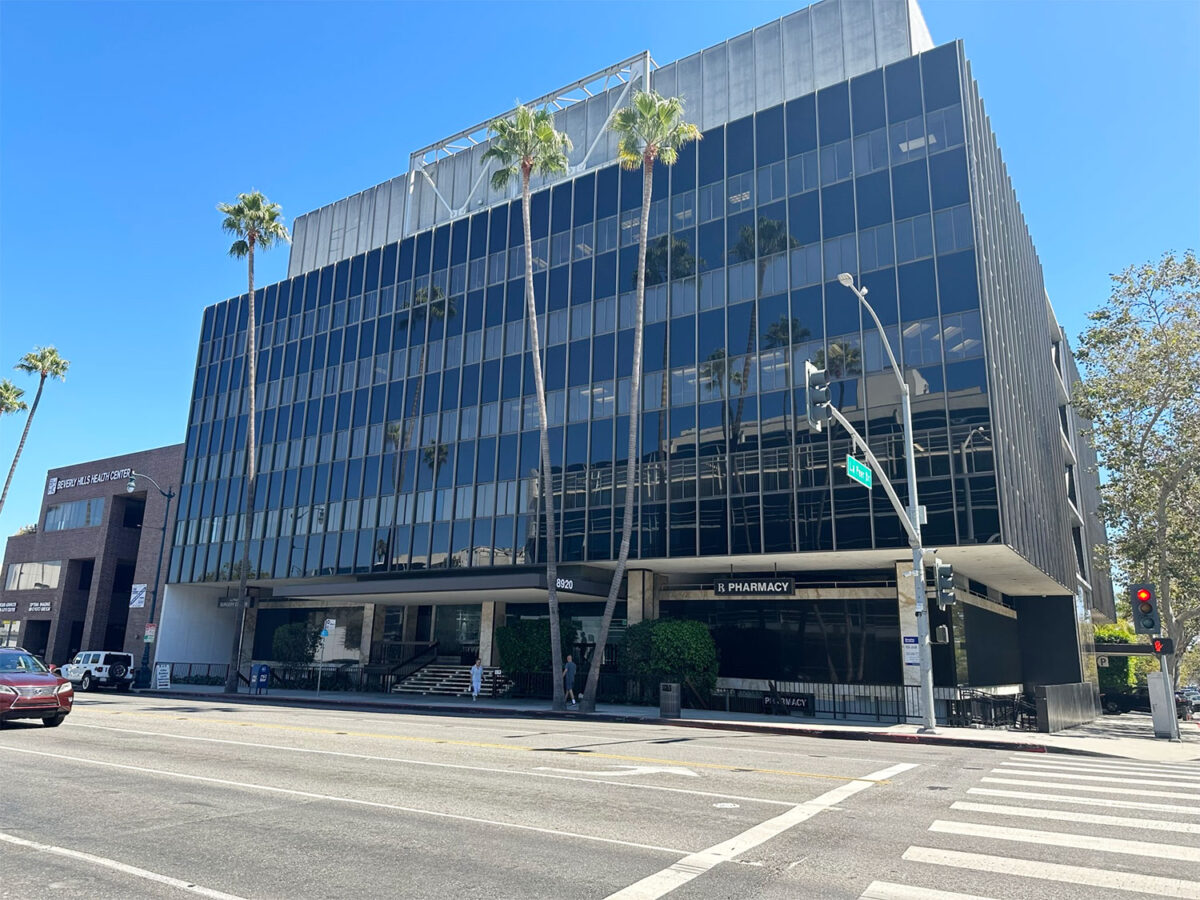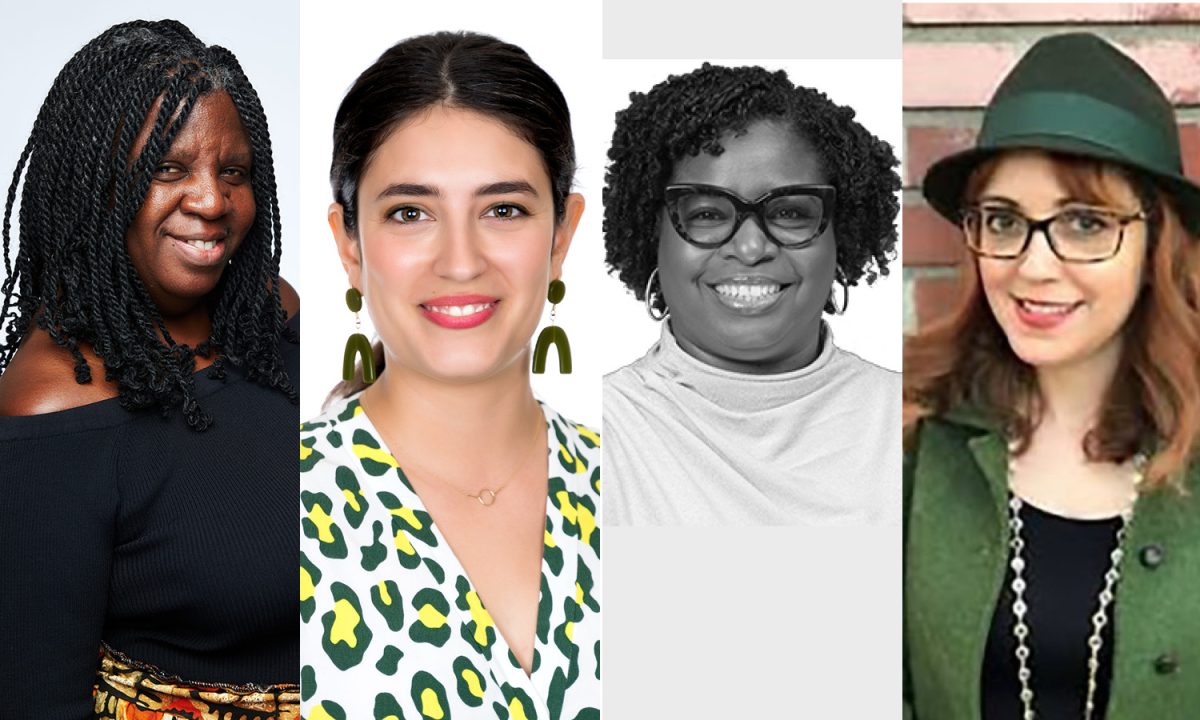The second installment of Critical Conversations–the speaker series presented by the Beverly Hills Human Relations Commission and Community Services–featured a dynamic panel of thought leaders and activists addressing “The State of Women’s Rights in Modern Times.” Held on Feb. 9 at the Municipal Gallery, speakers included Monsa Khalfani, Ph.D., Co-CEO and Chief Strategy and Equity Officer of Essential Access Health; Tabby Refael, columnist for The Jewish Journal of Greater Los Angeles; Jan Robinson Flint, Executive Director of Black Women for Wellness; and Mayahuel Gomez-O’Cadiz, Director of Communications and Research for Hispanas Organized for Political Equity (HOPE). Led by Human Relations Commission Chair Noelle Freeman, the panel addressed the future of reproductive rights, gender and racial wage gaps, how to support women around the world and advance women’s rights.
In her position as Co-CEO and Chief Strategy and Equity Officer at Essential Access Health, Khalfani oversees the federal family planning program in California, of which Essential Access is a state grantee, and has administered the program for more than 50 years. “When I think about what I do, our work is to champion and promote equitable sexual and reproductive health care for all,” Khalfani said. “So, we’re looking at policies, training, and research to really improve access across the spectrum.”
“WhatIcandoisIusemypenandIuse the microphone,” said Refael. An alumna of Horace Mann Elementary School, Refael was born in post-revolutionary Iran and came to the United States as a refugee in the late 1980s. “I speak as much as I can. I try to be a de facto ambassador for Iranian woman in this country, but I’ll let you know that unequivocally here, there are many more tireless and experienced Iran woman’s rights and human rights activists.”
As a founding member and Executive Director at Black Women for Wellness, a community-based nonprofit that centers around the health and well-being of black women and girls through health education, empowerment and advocacy, Flint spoke to the different programs that address issues related to food and water insecurity, nutrition, and the organization’s food distribution program.
Gomez-O’Cadiz spoke about the leadership development programs at HOPE, an organization dedicated to advancing the economic and political status of Latinas. “When you talk about empowering and uplifting and ensuring the rights of Latinas, you’re
talking about a trickle-down effect and to entire communities and the entire state,” Gomez-O’Cadiz said of the large Latina population in California. “We believe that when you empower Latinas, when you support Latinas, and when you pass policies that support Latinas and their families, you’re uplifting the entire state.”
When asked about addressing gender and racial wage gap, Gomez-O’Cadiz noted that “across sectors, and particularly in high paying sectors, we still see that wide pay gap” for Latinas. “So, it’s acknowledging that fact and then also passing policies that demand transparency of employers are one of the biggest things we can actually do.”
With the reversal of Roe v. Wade, questions were geared towards the future of reproductive rights in the country. “As an organization, we are overseeing about $80 million that’s related to abortion access,” Khalfani said. One program, the Los Angeles County Abortion Access Safe Haven Pilot Program, hopes to expand and improve access to reproductive and sexual health care, including abortion. “We’re looking at money for three to five years, where folks can build the infrastructure to not only meet the demand of Californians, but others that come here,” she added.
With the genesis of the Critical Conversations series sparked by the death of Mahsa Amini, Chair Freeman asked panelists how to advocate for women’s rights in places where they have historically been disenfranchised. “One of the best things we can do is to vary the news that we watch and consume,” Flint said.
“I want you to just spend five to 10 minutes a day keeping up with the latest in the news…put a Google alert for yourself of woman Iran or woman Middle East and there is no shortage of things that will come up,” Refael said. “Because those five minutes of exposure, it’s a little bit like five minutes of mental yoga for someone else around the world.”
“Share it, spread the word about it,” Refael added. “There is no reason in the world, why Iranians and America are the only people sharing information about the Middle East.”





